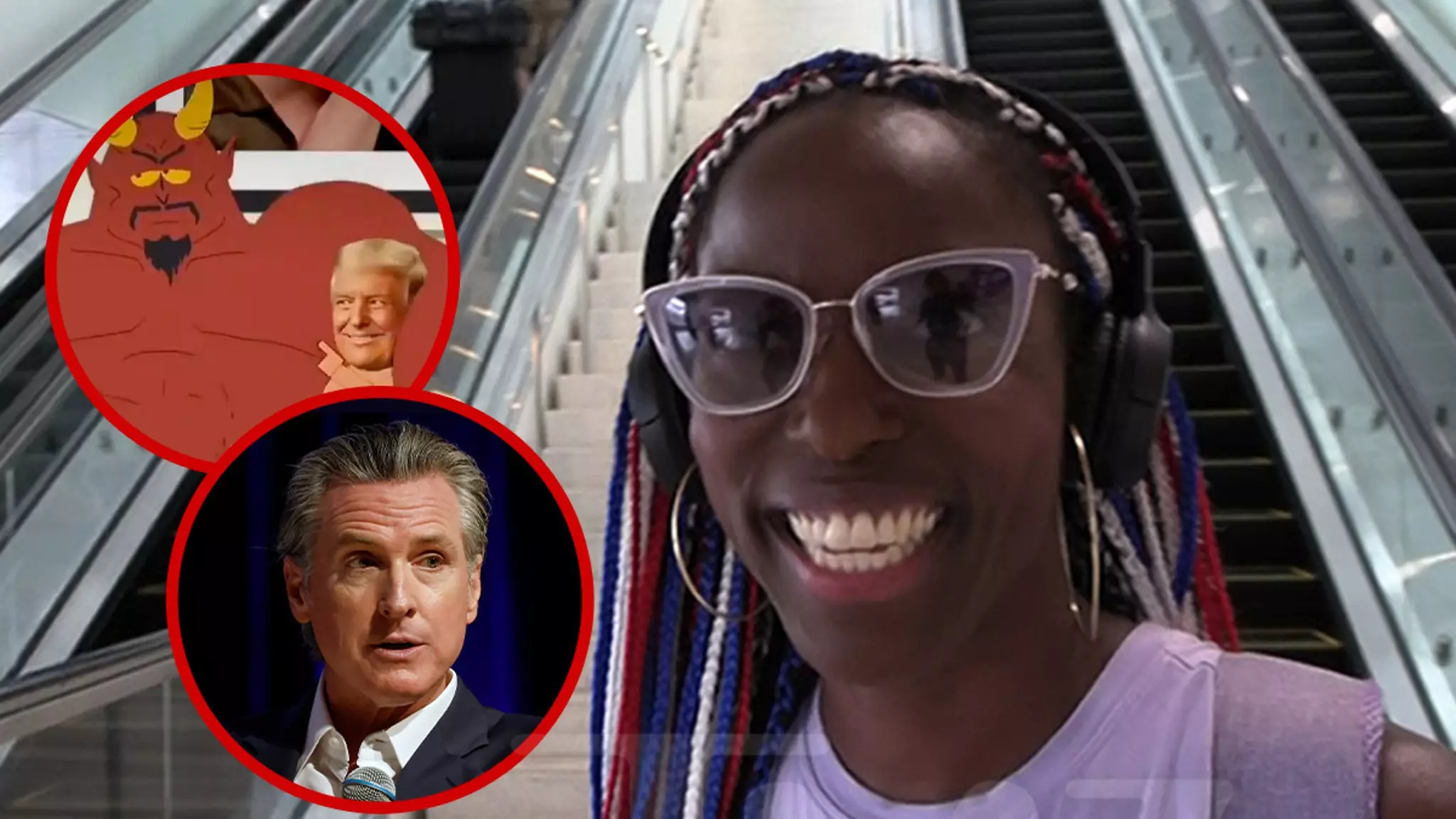In a polarized world where politics often feel like an unbridgeable chasm, satire emerges as a vital force that unites us in shared recognition of societal flaws. Shows like “South Park” exemplify this by taking an unflinching, humorous look at political figures, ideologies, and cultural debates. Janeshia Adams-Ginyard’s perspective underscores an important truth: satire isn’t about endorsing one side or the other, but about holding a mirror up—sometimes uncomfortable, but always revealing. The fact that she defends “South Park” for going after everyone equally highlights how comedy can serve as a balancing scale, reminding us that no one is immune from critique.
Such satire acts as a societal mirror that exposes hypocrisy, excesses, and contradictions. When “South Park” lampoons figures like President Trump and critics react by dismissing it as irrelevant, it reveals a deeper discomfort with humor that unsettles the status quo. Comedy, in its truest form, strikes at the heart of political pretensions and exposes the absurdity often lurking beneath serious facades. Adams-Ginyard’s appreciation for the show’s willingness to satirize both the left and the right demonstrates that humor’s true power lies in its ability to challenge entrenched narratives and promote critical thinking among viewers.
Satire as a Catalytic Tool for Social Awareness
The show’s willingness to tackle pressing issues through satire isn’t just entertainment; it’s a form of social commentary that can provoke meaningful reflection. Adams-Ginyard’s remark that “South Park” shines a light on country’s problems is insightful. Comedy becomes a form of activism, forcing viewers to confront uncomfortable truths dressed in humor. When the show targets political personalities like Gavin Newsom or goes after cultural movements, it underscores that nobody is off-limits. This unapologetic approach fosters a climate where discussions about power, hypocrisy, and societal failures can happen openly—albeit through exaggerated caricatures and irreverent jokes.
Furthermore, her critique of the political landscape emphasizes that humor often surpasses partisan rhetoric in unpacking complex issues. The assertion that conservatives have a “great sense of humor,” while leftists struggle to take a joke, is a provocative commentary that invites self-reflection on how humor functions across ideological divides. Comedy becomes a battleground for free expression, a space where the legitimacy of opposing views can be tested without violence, primarily through satire’s sharp edge.
Humor as a Cultural Barometer
Adams-Ginyard’s comments also prompt us to consider the cultural significance of comedy in shaping our collective consciousness. She views shows like “South Park” as integral to our cultural fabric—an unapologetic, sometimes controversial, tool for questioning authority and societal norms. When she suggests alternative targets like Gavin Newsom, it reveals her belief that satire should remain bold and fearless, not sanitized or restrained by political correctness.
Moreover, her critique of the backlash from conservative audiences and her praise for the show’s irreverence imply that humor’s role is inherently rebellious. It challenges the sanitized narratives and demands that we engage differently with politics and social issues. Whether or not one agrees with specific jokes or targets, the essential truth is that comedy persists as a form of cultural resistance—an arena where the uncomfortable truths are often delivered with a punchline instead of a punch.
By examining her stance, we see that humor is not just entertainment; it’s a mirror of societal tensions, a catalyst for dialogue, and, perhaps most importantly, a tool to remind us that the political landscape is as absurd as it is serious. As Adams-Ginyard rightly points out, comedy’s power lies in its ability to entertain while still prompting reflection—an invaluable trait in today’s fractured cultural climate.

